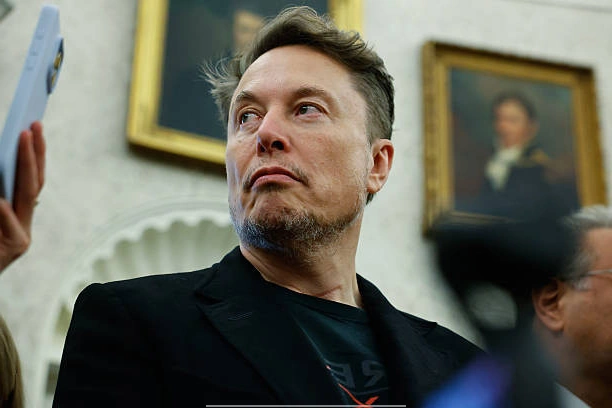
Elon Musk’s Critique of the Trump-Backed Megabill
Elon Musk recently shared his discontent with the sweeping spending bill that narrowly passed the House, a move encouraged by President Donald Trump. In an interview excerpt released on Tuesday, Musk openly criticized the ‘Big Beautiful Bill’ endorsed by the president, citing discrepancies with the objectives of his Department of Government Efficiency.
Expressing his disappointment, Musk remarked, ‘I was disappointed to see the massive spending bill, frankly, which increases the deficit, not just decreases it, and undermines the work that the DOGE team is doing.’ This critical stance from the billionaire Tesla CEO sheds light on the diverging perspectives within the government.
Influence on the Megabill: Musk’s remarks have the potential to impact the future direction of the megabill, especially as it navigates through the Senate with uncertain prospects. Republican Wisconsin Sen. Ron Johnson, a staunch Trump supporter, is advocating for deeper cuts to address the deficit, while other GOP members raise concerns about Medicaid cuts and tax credit rollbacks.
Despite the criticisms, the megabill, which includes key elements of Trump’s domestic agenda related to tax cuts and immigration, managed to pass through the House with a narrow margin. Musk’s emphasis on fiscal responsibility and alignment with the DOGE initiative underscores his commitment to efficient government operations.
DOGE Initiative Impact: Launched with a bold promise of $2 trillion in savings, the DOGE initiative spearheaded by Musk has led to significant restructuring within the federal agencies, resulting in the departure of approximately 250,000 federal workers. While the initiative claims to have saved taxpayers $160 billion, reports from the Penn Wharton Budget Model suggest an overall increase in government spending.
As the debate surrounding the megabill intensifies, Musk’s critical viewpoint injects a fresh perspective into the ongoing discussions. His emphasis on the balance between fiscal prudence and program effectiveness resonates with the broader discourse on government expenditure and efficiency.











